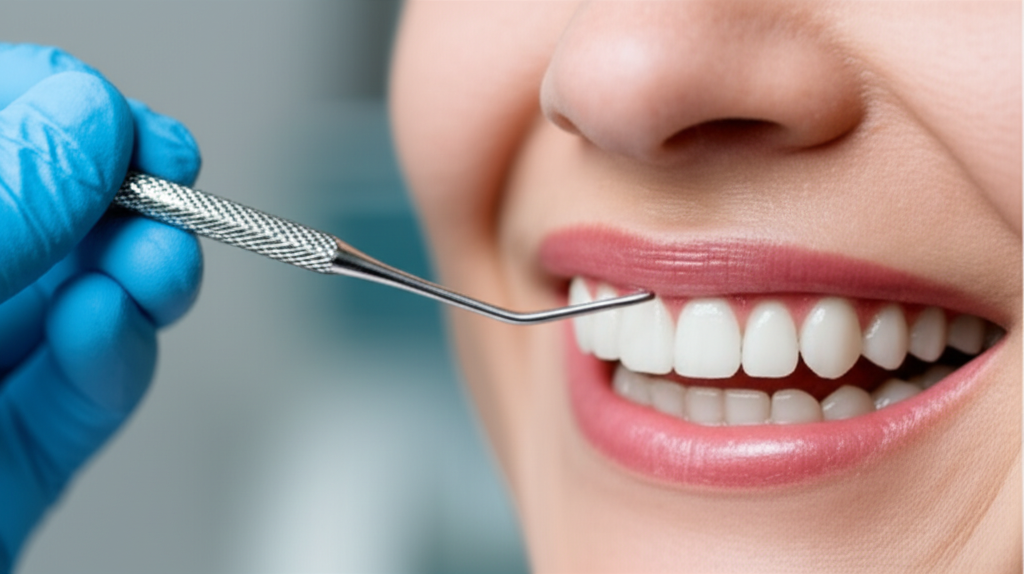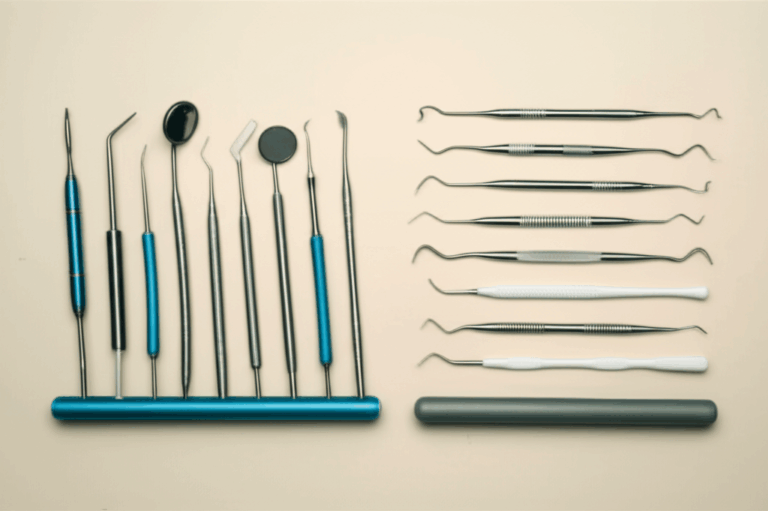
Denturist vs. Dentist: Who Offers Cheaper Dentures and Why? Your Comprehensive Cost Guide
Question: Are denturists cheaper than dentists for dentures?
Short answer: Most of the time, yes, for normal denture needs that don’t need tooth pulling or implants. There are important details to know, and the right choice depends on your mouth, your money, and what you want for your new smile.
Getting dentures is a big step. You want them to fit, look real, last a long time, and cost what’s fair—no surprise bills after. This guide will help you understand prices, what different experts do, how to save money safely, and how to make the best choice for yourself.
Table of Contents
1. The Simple Hook
If you typed in “are denturists cheaper than dentists,” you probably care about two things: the price, and getting dentures that really work for you. Denturists usually ask for less money because they only make and fit dentures, work right with patients, and have smaller clinics. Dentists and prosthodontists are trained for all dental needs, including surgery, and charge more because they handle more jobs.
Think of it like buying a suit. A suit maker who only makes suits can sew it fast and for less money. A full stylist will give you the suit, shoes, and fix whatever else you need, but asks for more since the job is bigger.
2. How It Works: What Each Expert Does and Why the Price Changes
Denturist:
- Main job: Makes, fits, and fixes dentures only—full or partial, sets for right away, tightens, and repairs.
- Direct care: Many times, you can go straight to one without a doctor sending you.
- Training: Focused on taking mouth molds, how your teeth fit, looks, and making dentures. They do not pull teeth or put in implants.
- Rules: Laws about denturists are different in each place. Check your local dental board.
General Dentist:
- Wide skill set: Can find and treat any problem with teeth and gums. If trained, they can do tooth pulling, fix gum disease, put in simple implants, and get full or partial dentures made, often by sending to a dental lab.
- How it works: Some steps may be done with help from dental labs or referred to specialists for hard cases.
- Training: Lots of schooling on every dental topic, so they can take care of different needs.
Prosthodontist:
- Specialist: A dentist with extra-years of learning in replacing teeth, like dentures, bridges, crowns, and implant dentures.
- Cost: Normally, the highest price. For hard-to-fix mouths or tough jobs.
Bottom Line: Denturists are experts in standard dentures. Dentists and prosthodontists help if your mouth problem is more complicated.
3. Are Denturists Cheaper? The Price Breakdown
Why denturists often charge less:
- Work direct with you: They make dentures right in the clinic. No middleman lab to add more charges.
- Smaller setup: They only need simple tools for dentures, with smaller teams. This can save you money.
- Extra practice: Doing the same job all day, they can work fast and make fewer mistakes.
Normal price ranges:
(Your price may go up or down based on where you live and how hard your case is.)
| Denture Type | Denturist | General Dentist | Prosthodontist |
|---|---|---|---|
| Full dentures (per arch) | $800 – $3,000 | $1,000 – $4,000 | $2,000 – $6,000+ |
| Partial dentures (per arch) | $700 – $2,500 | $900 – $3,500 | $1,800 – $5,000+ |
| Immediate dentures (per arch) | $1,000 – $3,500 | $1,200 – $4,500 | $2,500 – $7,000+ |
| Relines | $200 – $400 | $250 – $500 | $300 – $600+ |
| Repairs | $100 – $300 | $120 – $350 | $150 – $400+ |
| Consultations | Free – $150 (often) | $50 – $200 | $100 – $300+ |
- Extracting teeth: Not done by denturists. A dentist or surgeon charges around $75 to $450 per tooth.
- Implants: Only done by dentists or surgeons. $1,500 to $6,000+ per tooth.
What changes the price?
- Material: Cheaper plastic (acrylic) is less than special kinds or those with metal wires. Newer bendy types (like Valplast) are in the middle.
- Looks and strength: If you want fake gums or better-looking teeth, or if you pick teeth that don’t wear down fast, it costs more.
- Technology: Digital dentures (made using a computer) can be a little more at the start, but might save money by not needing to fix as much.
- How tricky it is: Oddly shaped gums or hard bites make the dentist work harder; price goes up.
- Location: Big-city offices are normally more expensive.
- Follow-up: Some include visits and small fixes; some don’t.
Quick money tip: In simple cases, denturists may save you 10–30%. In more tricky cases, you’ll need dentist or surgeon help, so the savings might disappear.
4. The Services—What You Get from Each
Denturist:
- Plans your denture and takes molds
- Helps you pick color and fit
- Makes and fits full/partial dentures or makes immediate ones after your teeth are out
- Tightens and fixes them
- Gives you cleaning tips
Denturist cannot: take out teeth, add implants, or handle gum surgery.
General Dentists:
- Checks overall mouth health
- Pulls teeth if needed
- Can put in easy implants (if trained)
- Sends out for denture making
- Adjusts fit
- Looks after gum problems
Prosthodontist/Oral Surgeon Only (needed for):
- Tricky mouths, loose gums, or bites that don’t line up
- Cases needing implants and bar-supported dentures
- Medical problems
5. Quality, Fit, and How the Visits Feel
Do denturists make better dentures?
The answer depends more on the person than the title. Denturists do nice work on plain cases. Dentists, especially prosthodontists, do well where health or fit is more confusing.
What matters for comfy, long-lasting dentures:
- Perfect mouth molds and bite checks
- Good dental labs (see removable denture lab)
- Strong and safe materials
- Digital (computer) designs can help
- Plans for touch-ups as your mouth changes
Visit experience:
- Denturist: See the maker face-to-face, get jobs done quickly.
- Dentist: Everything handled at one spot, including check-ups and surgery if needed.
On Implants:
If your lower dentures move around, 2–4 implants can really help. That’s a job for a dentist/surgeon, then you can see the denturist for the snap-on denture if you want.
6. Insurance, Payment Plans, Avoiding Hidden Costs
- Insurance: Most dental plans pay part of your denture bill but you may have to use a dentist, not a denturist. Always check your plan first.
- Medicaid/gov’t help: Varies by where you live; some cover adult dentures, some don’t.
- Low-cost tips: Dental schools, health centers, and charities sometimes help or lower costs.
- Payment: Many places let you pay over time or have a payment plan. Ask about interest or fees.
- Hidden costs: Ask exactly what’s included so you’re not surprised—molds, check-ups, touch-ups, first-year reline? If you need teeth out first, is that separate?
7. How to Choose—Questions to Ask
- Is the full price all-in? (fittings, follow-ups, touch-ups)
- Who does extractions or implants if I need that?
- Can I pay monthly?
- What materials will you use? (plastic, porcelain, metal, bendy/Valplast)
- Will you use digital scans to make my dentures?
- Which dental lab do you use and why?
- How often do you do cases like mine?
- How do you make sure my teeth fit and look right?
- How long from start to finish? Are fast dentures an option?
8. Who Is a Good Fit For Each Path?
Denturist:
- You already lost your teeth, and gums are healthy
- You want normal or partial dentures with no tooth pulling
- You want a lower price and want to talk right to the maker
Dentist or Prosthodontist:
- You need teeth pulled first
- You want implant or special snap-in dentures
- Your mouth has problems like sore gums, lots of missing jawbone, or strange bite
- You want one office to handle it all
Referrals: You don’t always need one. Go see who you want. If things get tricky, you might be sent to a specialist.
9. Common Questions—Simple Answers
Are denturists cheaper?
Yes, usually, if your case is simple.
How much for full dentures?
$800–$3,000 per jaw with a denturist; $1,000–$4,000 at a dentist.
How much for a set (top and bottom)?
About double per-jaw cost; so $1,600–$6,000 with a denturist depending on details.
Partial denture cost?
$700–$2,500 per jaw with a denturist; $900–$3,500 at a dentist.
Immediate dentures cost?
$1,000–$3,500 per jaw with a denturist; $1,200–$4,500 at a dentist.
Reline cost?
$200–$500 depending on the type and provider.
Repair cost?
$100–$350.
Are digital dentures worth it?
Can cost more at the start but saves money if it means fewer fixes or easier replacement.
Will my insurance cover it?
Maybe, but check if you must use a dentist or if your denturist is covered.
Does Medicaid pay?
Sometimes. Ask your local office.
Do I need teeth out before dentures?
Only if you still have teeth that can’t be saved.
Implant denture cost?
Implants: $1,500–$6,000 each, plus denture price.
Are denturists certified?
Only in states/countries where allowed. Always check.
Are dentists better for dentures?
Depends on your needs—simple cases, denturists are great. Complicated or surgery needs, see a dentist.
Hidden costs?
Extra visits, relines, cleaning—ask for everything up front.
How to find affordable dentures?
Check both a denturist and a dentist, ask about plans, and try dental schools.
Material cost differences?
Better fake teeth, bendy or metal frames, and special gums can cost more.
What’s an overdenture?
A denture that clips onto implants—stays in place better.
10. Real-Life Case Example
Mrs. A lost all her teeth and wanted a nice, natural smile with easy chewing. She got two quotes:
- Denturist: $3,500 for top and bottom “best” dentures, includes three follow-ups.
- Dentist: $4,500 for top and bottom, two follow-ups, exam extra ($120).
She picked the denturist and saved $1,000. She still got a checkup from a dentist to make sure all was healthy. Later, if she wants implant snaps, she’ll see the dentist or surgeon for that part, then go back to her denturist for a better-fitting denture.
11. Extra Tips to Save More Without Risk
- Get quotes from both—write down what’s included.
- Ask about digital denture making (digital dental lab).
- Do it in steps—get normal dentures now, add implants later if you want.
- Try community help—dental schools or health centers.
- Plan for upkeep—budget for cleaning, relining, or fixing this year and later.
Why good lab work matters:
Great dentures depend on a good mold and a skilled lab. Some labs do just dentures and get the details right (see implant dental laboratory). If you love natural looks, ask your provider if they use a good lab for color matching and gum detail.
12. Plain-English Summary & Your Checklist
- Price: Denturists often save you 10–30% on basic dentures, relines and fixes.
- What they can do: Denturists only make/fix dentures (no tooth pulling or implants). Dentists do everything, especially if it’s tricky.
- Quality: Both can be great—what matters is their skill, good materials, and working with a good lab.
- Hidden costs: Always ask for the full, no-surprise price including check-ups, relines, and guarantees.
- Who to choose: Straightforward needs—denturist. Need teeth out, implants, or special help—dentist.
What to Do Next
- Get 2–3 consults: at least one with a denturist, and one with a dentist or prosthodontist.
- Take this list of questions with you!
- Ask about timing—from first visit to finish, and for fast options if you need them.
- If you need surgery or implants, get the plan in writing and check the price.
- Compare full quotes—don’t just look at the first number. Add up all visits and adjustments.
- Keep your mouth healthy—ask for a check-up before starting so there’s no hidden problem under your future dentures.
You don’t have to choose between spending a lot and getting a smile you’re proud of. Some people see a dentist for surgery and long-term checkups, then work with a denturist for the actual dentures. Others keep it all in one dental clinic. The best choice is the one that meets your needs, feels fair cost-wise, and helps you feel good about your smile.
Helpful Terms
- Alveolar ridge: The gum and bone where teeth used to sit—dentures rest here.
- Bone resorption: Bone loss after teeth come out—changes the fit over time.
- Bite registration: The molded record of how your jaws fit together for setting your dentures.
- Reline: Extra material added inside a denture to help it fit better.
- Rebase: Changing the base (the pink part) but keeping the same fake teeth.
- Overdenture: A denture that “snaps on” to implants or roots.
You have options. You are in charge. Book a couple of appointments, ask your questions, see who listens, and pick the one you trust. Your future smile will thank you!
Trusted sources: Check your local Dental Board or the American Dental Association for details about safe denture care, qualifications, and rules. Prices here are only general guides—always ask for a full written quote including every part of your treatment. This guide is just for learning, not a personalized dental plan.








